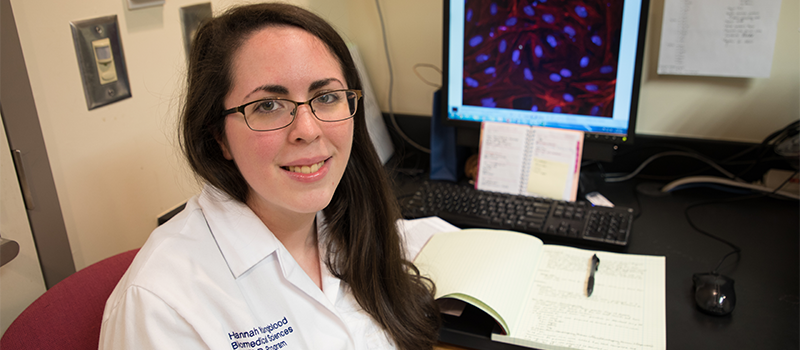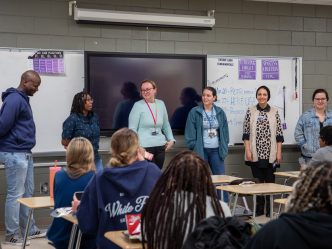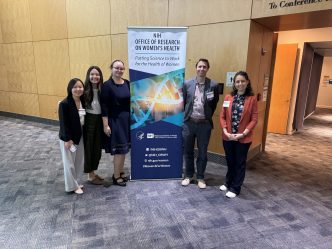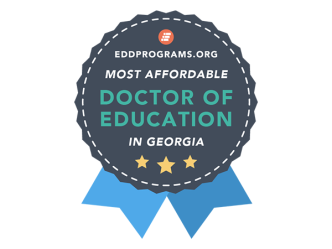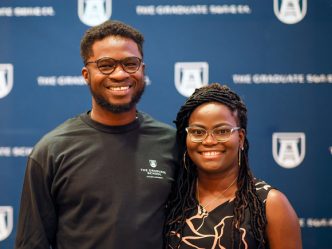According to the National Eye Institute, “Glaucoma is a group of eye diseases that can cause vision loss and blindness by damaging a nerve in the back of your eye called the optic nerve.” An estimated 79.6 million people worldwide will be effected by glaucoma in 2020 and according to the World Health Organization (WHO), glaucoma is the second leading cause of blindness. For 3rd year Cellular Biology and Anatomy PhD student, Hannah Youngblood, these statistics hit a little closer to home, her father has glaucoma. She says, “When you have someone close to you with any particular disease and you see their struggles, you have compassion for other people who are having the same problems. You want to see better therapies and ways to prevent that from happening.” This is what Hannah has been working toward in Dr. Yutao Liu’s Lab.
Current treatments for glaucoma, according to Hannah, “are like putting a Band-Aid on a large wound, it doesn’t fix the problem and doesn’t work in all cases.” Many people with glaucoma have high intraocular pressure and most treatments focus on lowering eye pressure help to slow the disease. This pressure is caused by decreased outflow of a fluid called aqueous humor from the eye through tissue called the trabecular meshwork. Hannah is specifically looking at the trabecular meshwork to see how it responds to estrogen. There have been studies showing an increased risk of glaucoma in individuals with low estrogen levels, for example after menopause or in men and a decreased risk during pregnancy. Hannah is investigating the protective roll of estrogen against glaucoma by treating different cell cultures with estrogen. Hannah says she enjoys doing research because “it’s exciting finding new things that have not been seen before. It’s a challenge but it’s a fun challenge, like putting a puzzle together.”
When Hannah is not spending time in the lab, she serves as the Humanitarian for the Biomedical Student Association (BSA). As the Humanitarian, she is responsible for coordinating at least one service project for the BSA members to participate in per month. So far this year, the BSA has completed a total of four projects.
The first project was related to the first year mentoring program for the incoming class of Biomedical Sciences PhD students. Hannah explained that they pair upperclassmen in the biomed program with first year biomed students to “show them the ropes” for the first year. The second project that Hannah coordinated was for the Georgia War Veterans Nursing Home (GWVNH), which sits just across the street from the Augusta University Health Sciences campus. Hannah said she was inspired to write letters to the residents of the GWVNH once she realized they weren’t allowed visitors due to COVID-19 regulations. She thought it would be nice to reach out to them with some notes of encouragement. Together, the BSA was able to write one letter to each resident for a total for 98 letters.
The BSA also created educational scientific videos for Richmond County Libraries and collected donations for Augusta Health medical and environmental services personnel to say thank you for their dedication during the pandemic. When asked what made her want to get involved with the BSA as the Humanitarian, Hannah said, it’s a “good way to develop leadership skills, meet other people and make a difference on campus and in the community.”
 Augusta University
Augusta University
